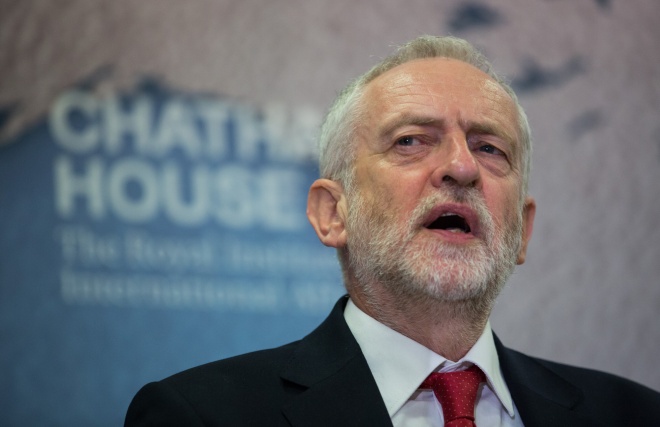
Glancing at the Tory-supporting press yesterday, one would be forgiven for thinking that Jeremy Corbyn’s Labour Party was out to rob the British working classes and do them out of house and home.
That’s the impression they surely wanted to give as they coordinated to scaremonger readers with the idea that Labour is planning to hit households what they have termed a ‘garden tax’.
Pretty much identical articles ran in The Sun, the Daily Mail, the Daily Telegraph and the Daily Express about supposed plans to replace council tax and business rates with a Land Value Tax (LVT) that it was claimed would treble the amount that households pay annually.
The articles cite analysis from unnamed Conservative Party figures that claim the plans – which would replace property-based council and business tax with a tax on land owned – would instantly lead to a 224% rise in tax bills for the average family.
What the stories are referring to is a couple of sentences on page 86 of the Labour Party manifesto under the section ‘Local Communities’ where the party talks about plans for local government funding and the potential for reform:
‘We will initiate a review into reforming council tax and business rates and consider new options such as land value tax, to ensure local government has sustainable funding for the long term.’
So for a start, it’s not even a plan. The LVT will just be among considerations as part of a review into possible local authority spending reform.
But a bigger problem with the articles is that LVT has been totally misrepresented as a mechanism to hike tax rates up for ordinary families. But the likelihood is that the majority of home-owners wouldn’t see much difference in the amount they had to pay. LVT is a tax on the market value of the land rather than the property but, seeing as property value is based on land value, it would be unlikely to lead to much change.
The biggest difference with LVT is that it generates tax revenue on land owned that isn’t utilised, so it’s probably more accurate to term it a ‘land-owners tax’ than a ‘garden tax’. It would mean that landowners and developers would have to stump up on plots of land owned even if currently unused.
The papers mention that annual LVT could be set at 3% of land value (which makes up approx. 55% of property value). This would lead to a trebling of current council tax bills if true. But the amount that has been suggested for home-owners (in a policy paper by the Labour Land Campaign) is 0.85%, which is in line with current bills. A higher rate of 3% is suggested for large estates, second homes and business premises (which is in line with current business rates). There is a suggestion of raising the 0.85% rate over a 10-20 year period, while also reducing VAT and income tax rates so that the overall tax burden doesn’t fall on the poorest or average earners. For the press to state that LVT would lead to a trebling of bills for everyone is an outright lie.
LVT is seen by many as a more progressive and efficient form of taxation than the likes of council tax, as it generates more money from wealthier groups and encourages the development of unused space. It also means that the tax will be levied on landlords rather than tenants (although rents will probably be adjusted to account for this).
LVT has support as a method of taxation from the likes of the Institute for Fiscal Studies and the free-market economic think-tank the Adam Smith Institute, as well as many on both left and right of politics as a more socially equitable form of taxation. Even Winston Churchill extolled the virtues of a land tax in a parliamentary speech as a Liberal in 1909.
However, like most ideas, it is not supported by all economists and political theorists. In 2005, the Institute for Public Policy Research published a report called ‘Time For Land Value Tax?’ which looked at both pros and cons of LVT.
The Tory press has rubbished the idea, even though it makes it into the Labour manifesto as a suggestion mentioned once, primarily because it can be used as another stick with which to beat Jeremy Corbyn. Also, as it’s another tax measure that would hit the wealthiest hardest, it’s no surprise to see these four papers (whose owners have a combined wealth of £20 billion) denouncing it. As with Labour’s suggested raise in the top rate of income tax, it’s in these papers’ interest to scaremonger and make it sound as if ordinary people will lose out.
For more information on Land Value Tax, see here and here.
Tabloid Corrections Facebook page: here.

